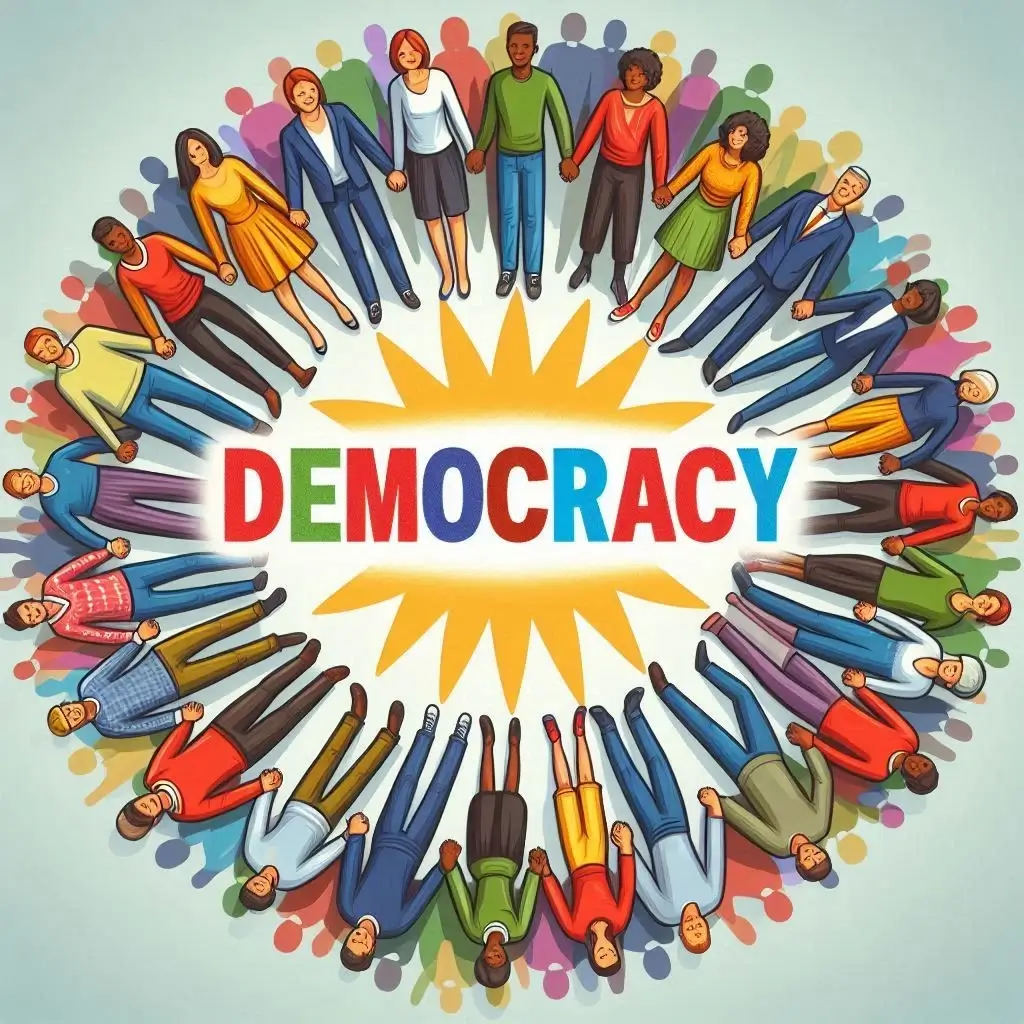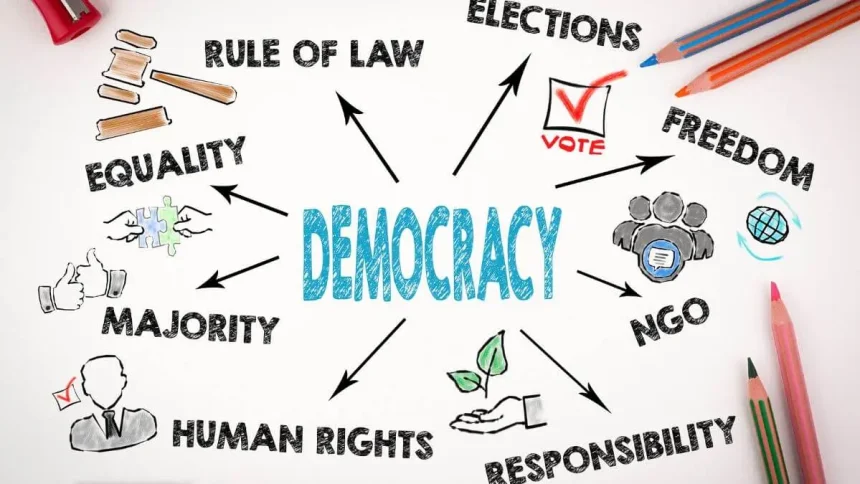Democracy is a system of government where power lies with the people. Every citizen has a vote. This vote can elect leaders and influence laws. Ideally, democracy should treat everyone equally. But does it really?
The Ideals of Democracy
Democracy aims for equality. Each citizen’s vote holds the same weight. The rich and poor should have equal political power. Everyone should have the same rights and opportunities.
Key Principles of Democracy:
- Equal voting rights
- Freedom of speech
- Protection of individual rights
- Fair and free elections
These principles sound promising. They suggest a system where wealth does not affect power. However, reality often differs from ideals.
The Influence of Wealth in Politics

Wealthy individuals and corporations often have more political influence. Money can fund campaigns. It can buy advertisements and promote candidates. Wealthy donors can contribute large sums to political parties. This can lead to favoritism.
Ways Wealth Influences Politics:
- Campaign donations
- Political advertisements
- Lobbying efforts
- Access to politicians
This financial power can sway elections. It can shape policies and laws. Wealthy individuals can lobby for favorable regulations. This can create an imbalance in political power.
Campaign Financing
Campaigns need money to reach voters. Advertising, travel, and events cost a lot. Candidates often rely on donations. Wealthy donors can give large amounts. This can create a dependency on wealthy contributors.
Problems with Campaign Financing:
- Reliance on wealthy donors
- Potential for corruption
- Policies favoring donors
Candidates may feel obliged to support their donors’ interests. This can undermine the interests of the poor. Campaign financing reforms are essential. They can help reduce the influence of money in politics.
Lobbying and Special Interests
Lobbying is a legal way to influence lawmakers. Corporations and wealthy individuals often hire lobbyists. They advocate for specific policies. This can lead to laws that favor the rich.
Impact of Lobbying:
- Influence on legislation
- Favorable policies for the wealthy
- Marginalization of the poor
Poor citizens usually cannot afford lobbyists. Their interests may not be represented equally. This can widen the gap between rich and poor.
Access to Politicians
Wealthy individuals often have better access to politicians. They attend high-profile events. They can afford to donate large sums. This gives them opportunities to discuss their concerns directly with leaders.
Advantages of Wealthy Individuals:
- Invitations to exclusive events
- Direct communication with politicians
- Greater influence on policy decisions
The poor rarely have such access. Their voices can be drowned out by those with money and connections. This can lead to policies that favor the wealthy.
Social and Economic Inequalities
Economic inequality affects political power. The rich have resources to influence politics. The poor often struggle to make their voices heard. This imbalance can perpetuate social inequalities.
Consequences of Economic Inequality:
- Unequal access to education and healthcare
- Disparities in living standards
- Limited opportunities for the poor
Democracy aims to reduce such inequalities. However, achieving this goal is challenging. Socioeconomic status still plays a significant role in political influence.
Education and Political Participation
Education is crucial for informed voting. The wealthy often have better access to education. This can result in greater political awareness and participation.
Education and Political Power:
- Higher political awareness
- Informed voting decisions
- Greater participation in political processes
The poor may lack access to quality education. This can limit their political participation. Educational disparities can lead to unequal representation.
Voter Suppression
In some democracies, voter suppression tactics are used. These tactics can disproportionately affect poor and marginalized communities. They include strict ID laws, limited polling places, and gerrymandering.
Forms of Voter Suppression:
- Voter ID laws
- Reduced polling locations
- Gerrymandering
These tactics can reduce the political power of the poor. Ensuring fair voting practices is essential for true equality.
Policy Outcomes
Policies often reflect the interests of the wealthy. Tax cuts for the rich, deregulation, and cuts to social programs are common. These policies can widen the gap between rich and poor.
Policies Favoring the Wealthy:
- Tax cuts for the rich
- Deregulation of industries
- Reduction in social services
The poor often rely on social programs. Cuts to these programs can increase hardship. Ensuring policies that benefit all citizens is crucial.
The Role of Media
Media plays a significant role in shaping public opinion. Wealthy individuals and corporations often own media outlets. They can influence the narrative and sway public opinion.
Media Influence:
- Ownership by wealthy individuals
- Biased reporting
- Shaping public opinion
Independent media and diverse perspectives are vital. They help ensure balanced reporting and informed citizens.
The Importance of Civic Engagement
Civic engagement is crucial for a functioning democracy. All citizens, rich and poor, should participate. Voting, protests, and community involvement are ways to engage.
Ways to Increase Civic Engagement:
- Encourage voter registration
- Promote community involvement
- Support civic education
Greater civic engagement can help balance political power. It ensures that all voices are heard.
Reforms for Greater Equality
Several reforms can help achieve greater equality in democracy. Campaign finance reform, lobbying regulations, and voter protection laws are key.
Potential Reforms:
- Campaign finance limits
- Lobbying regulations
- Protection against voter suppression
These reforms can reduce the influence of wealth in politics. They can help create a more equal system.
Democracy aims to treat everyone equally. However, wealth often skews political power. Campaign financing, lobbying, and social inequalities can create imbalances. Reforms and greater civic engagement are essential. They can help achieve the ideals of democracy. Everyone’s voice should matter equally, regardless of wealth.
By addressing these issues, we can create a more just and equitable society. True democracy should ensure that both the poor and rich have equal power. Only then can we realize the full potential of democratic principles.
More Updates: https://www.timelinetale.com/







